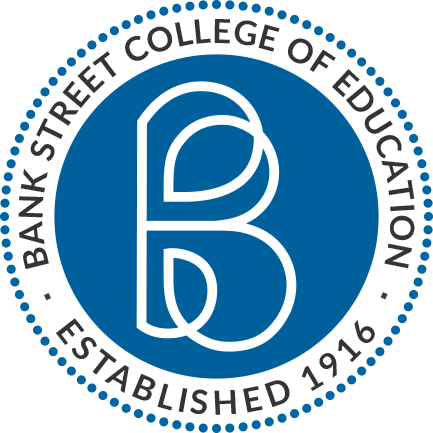-

Descriptive Inquiry to Advance Democracy in Early Childhood Special Education Teacher Preparation
Soyoung Park and Rae Leeper
The field of early childhood special education continues to be dominated by deficit-based perspectives of young disabled children. In contrast, Descriptive Inquiry supports educators to see children as multifaceted and full of strengths, promoting the democratic aim of schooling to nurture individual human flourishing for the good of society. Through a qualitative discourse analysis, we explore how 36 graduate students applied Descriptive Inquiry to their work with young disabled children. We highlight four cases of graduate students and their focus children in this article. Our findings indicate that Descriptive Inquiry can serve an important means of advancing democracy for young disabled children. We recommend that early childhood special education teacher educators consider incorporating Descriptive Inquiry into their programs if they hope to instill democratic dispositions in their teacher candidates.
-

Building Responsive & Sustainable Early Educator Apprenticeship Programs
Annie Schaeffing, Brooke Tucker, Liz Hartline, Lily Rosenthal, and Davia Brown-Franklyn
This publication shares key findings and design recommendations from the Bank Street Education Center’s evaluation of Vermont’s early childhood education apprenticeship program. Drawing on excerpts from interviews and focus groups, the report explores how apprenticeship models can support early educators in earning credentials and degrees, and how program design can be adapted to better meet the needs of the early education workforce.
-

Reframing Deficit Narratives to Honor the Community Cultural Wealth of Immigrant Families of Children with Disabilities
Soyoung Park
Existing research suggests that immigrant families navigating the special education process are rarely positioned as powerful partners working alongside educators. This is a manifestation of the racism and ableism endemic to the United States schooling system that leads to educators viewing immigrant families from a deficit-based lens. Do these perceptions, however, match the ways that immigrant families view themselves? This qualitative participant-observation study addresses this question by exploring educators’ and families’ perceptions and positionings of immigrant families who are navigating special education. I unpack discrepant views among educators and families of 16 children labeled “English Learner” with or suspected of having disabilities. The findings indicate that the immigrant families see themselves as possessing tremendous community cultural wealth (Yosso, 2005), which counters the deficit-oriented view the educators have of them. I argue for a reframing of the common narratives surrounding immigrant families in special education away from deficit-based conceptions towards ones that honor the strengths, knowledge, and assets of the families.
-

Language Values Guide
Bank Street College of Education. School for Children
Designed to be used as a tool and to provide useful information on our daily interactions with both adults and children. The purpose of this guide is to continue educating our community toward maintaining a safe and inclusive community by recognizing what we say does matter. This guide will be used as a support document throughout the College, including with our partners, so we share a common language that respects both individuals and groups.
-

Integrating Residencies into Substitute Teaching
Prepared To Teach, Bank Street College
This one-page document illustrates the possibilities and benefits of having residents take on substitute teaching roles in a district. Dollars previously allocated to substitute teaching can be redirected toward candidate stipends while substitute teaching needs are largely met by the cohort of residents.
-

Investing in the Birth-to-Three Workforce: A New Vision to Strengthen the Foundation for All Learning
Emily Sharrock and Courtney Parkerson
This report asserts that every child—regardless of race, income, or opportunity—should have consistent access to high-quality learning experiences from birth and provides a roadmap toward change at scale, including the development of residency programs and improved compensation for the infant/toddler workforce.
-

Prepared To Teach National Network
Bank Street College
A two page summary of the Prepared To Teach National Network of teacher residencies.
-

New York State Root Causes
Bank Street College of Education
When teachers quit, education fails. Teacher residencies can reduce turnover, diversify the teaching profession, and support student learning. New York State has an opportunity to transform teacher preparation.
-

Professional Preparation
Bank Street College of Education
Part of being a professional is completing quality preparation. But teachers don't necessarily receive rigorous, extended practice as other professions do—and notably, they don't get paid for their work when they do.
-

Simplifying Improvement
Bank Street College of Education
Initiatives, projects, and structural changes in service of school reform can become overwhelming and complicated. Teacher residencies are a streamlined way of untangling priorities for improvement and creating a unified strategy.
-

The 3 R's of Sustainably Funded Residencies
Bank Street College of Education
Deep partnerships between universities and districts are essential to the success of locally-grown teacher residencies, in part because of the funding opportunities these relationships unlock. Across the country, partnerships have identified funding strategies that can sustain and scale residencies, including dedicated financial support for aspiring teachers completing their clinical practice placements. Districts rethink staffing to free up dollars and programs find ways to reduce costs. When residencies design and recruit in ways that meet P-12 needs, districts also frequently dedicate additional dollars to the partnership. Together, these approaches offer “3 R’s” for sustainable residency funding.
-

The Prepared To Teach Paradigm Shift
Bank Street College of Education
Prepared To Teach exists to help districts, states, and teacher preparation programs find ways to develop sustainable streams of public funding to support high-quality teacher preparation.
-

Transforming the Teacher Development Trajectory
Bank Street College of Education
Teacher preparation programs that work for everyone—preparation providers, districts, and aspiring teachers—rely on strong partnerships. Residency programs bring districts and providers together to support sustained clinical practice for candidates and create aligned goals throughout the program, linking teacher preparation to success in the classroom.
-

Money Matters
Bank Street College of Education and Prepared To Teach, Bank Street College
This short document summarizes the research supporting a unified P-20 system and how teacher residencies can bring us closer to achieving that goal.
-

New York City Pre-K Leadership Study
Veronica Benavides, Faith Lamb-Parker, and Sheila Smith
Presents key findings from a study of New York City pre-K leaders that evaluated how leaders support teachers and what factors help or hinder leaders’ efforts to positively impact learning for all children.
-

Feelings Charts Instead of Behavior Charts: Radical Love Instead of Shame
Margaret Blachly and Noelle Dean
In this article, the authors introduce some core concepts and language of Emotionally Responsive Practice at Bank Street , an approach to working with children developed based on deep knowledge of child development and a respect for children’s life experience (Koplow, 2002, 2007, 2009).
-
![The Ideas Came From the Kids: The Developmental-Interaction Approach at Castle Bridge, a New York City Public School [Film] by Todd Chandler, Margaret Blachly, Carmen Colón, and Jessica Charles The Ideas Came From the Kids: The Developmental-Interaction Approach at Castle Bridge, a New York City Public School [Film] by Todd Chandler, Margaret Blachly, Carmen Colón, and Jessica Charles](https://educate.bankstreet.edu/faculty-staff/1052/thumbnail.jpg)
The Ideas Came From the Kids: The Developmental-Interaction Approach at Castle Bridge, a New York City Public School [Film]
Todd Chandler, Margaret Blachly, Carmen Colón, and Jessica Charles
Castle Bridge, a public elementary school in New York City, implements Bank Street's developmental-interaction approach to provide deeper learning experiences for children.
-
![A Civics Lesson: Perspective Taking in Early Adolescence [Film] by Todd Chandler, Alison McKersie, Abigail Kerlin, and Jessica Charles A Civics Lesson: Perspective Taking in Early Adolescence [Film] by Todd Chandler, Alison McKersie, Abigail Kerlin, and Jessica Charles](https://educate.bankstreet.edu/faculty-staff/1053/thumbnail.jpg)
A Civics Lesson: Perspective Taking in Early Adolescence [Film]
Todd Chandler, Alison McKersie, Abigail Kerlin, and Jessica Charles
The Bank Street School for Children's approach to teaching and learning is experience-based, collaborative, and prioritizes strong relationships.
-

Performance Assessment of Aspiring School Leaders Grounded in an Epistemology of Practice: A Case Study
Jessica E. Charles, Rebecca Cheung, and Kristin Rosekrans
There is increasing interest in the field of leadership preparation about the opportunities that robust performance assessments may provide to capture and evaluate the complexity of school administrators’ work. Heretofore, the conversation about administrator performance assessment in leadership preparation has mainly centered on the development and impact of large statewide assessments that grow out of a Cartesian epistemology of individual knowledge possession, in which individuals must demonstrate mastery of a set of static knowledge and skills. We analyzed the characteristics of a performance assessment system that deliberately accounts for the organizational complexity of practice and knowledge generation in its design. Candidates are assessed by faculty and coaches on state-wide and program standards, but instead of producing evidence of their practice as individuals, they are assessed within simulated practice-based scenarios that require them to both draw on their extant individual and collective knowledge and build and act on new knowledge as they move through the simulation. Our analysis enables us to dimensionalize issues related to state mandated performance assessments and their implementation by preparation programs.
-

Tracy Fray-Oliver Presents at Gates Foundation Networks for School Improvement Convening
Tracy Fray-Oliver
During the Gates Foundation Networks for School Improvement (NSI) convening on July 16, 2019, Tracy Fray-Oliver of the Bank Street Education Center presented a Year One Reflection on the center's work with Yonkers Public Schools to help more Black, Latino, and low-income students complete 8th grade math.
-

Coherent Schools, Powerful Learning: When Shared Beliefs Fuse School Culture, Structures, and Instruction
Douglas R. Knecht
Describes the evolution of a theoretical model of school quality drawn from my experiences teaching at different schools, pursuing graduate studies, leading district policy and support networks, and partnering with school systems, as I presently do at Bank Street College of Education. The model positions schools as the key lever for improvement and equity in our public system and focuses on the coherence of school culture, structures, and instructional approach grounded in beliefs of human development and learning. Using two contrasting schools as cases to explore and develop this model, I offer one as an example of incoherence and the other, Humanities Preparatory Academy in New York City, as an exemplar of how culture, structures, and instruction are fused by shared beliefs and made manifest by leveraging a set of core values. I then turn to the role of districts and state agencies, which cannot directly generate coherence in schools from the outside in. Recent research underscores the importance of school-level coherence and also indicates that the ecosystem of schools must change to foster such coherence. I end with a brief discussion of our need to shift our systemic policies and approaches away from the reductive forces of high-stakes testing and instead embrace this holistic vision of schooling to shape future school improvement and reform efforts.
-

Maximizing Every Child's Potential in the First 1,000 Days of Life: A Landscape Analysis
Emily Sharrock and Courtney Parkerson
This report features a series of findings, supporting evidence, and bright spots that build a case for developing a stronger approach to supporting the diverse infant/toddler workforce.
-

About Prepared To Teach
Bank Street College of Education
Learn more about Prepared To Teach and our work around sustainable funding for teacher preparation.
-

Prepared To Teach Paradigm Shift
Bank Street College of Education
Prepared To Teach is changing the way we prepare teachers. Read about how we work with stakeholders to shift thinking about teacher preparation.
-

Prepared To Teach Urban Transformation Strategy
Bank Street College of Education
When teachers quit, education fails. Prepared To Teach is solving the crisis of teacher turnover in urban public schools.
Printing is not supported at the primary Gallery Thumbnail page. Please first navigate to a specific Image before printing.


